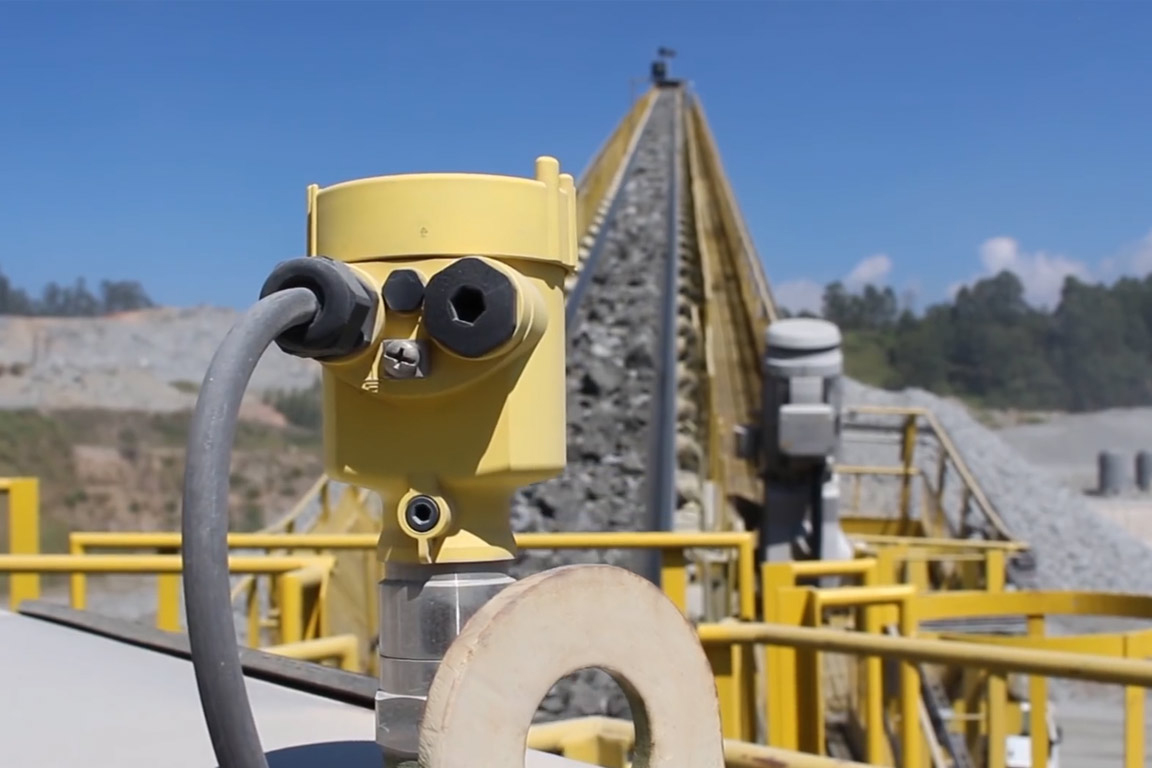In Mogi das Cruzes, the Embu Group’s Itapeti Quarry crushes 150 000 metric tons of rock every month, but its production capacity is up to 400 000 tons/month. The company reached this capacity at the end of 2013 after implementing a new, fully automated crushing line. It consists of Metso equipment that produces more than 20 types of material, including dry manufactured sand – one of its flagships today. Technical Director Márcio Gonçales and Electrical Engineer André Oliveira Leme are responsible for the project, which had an extensive research phase that resulted in the assembly of “a plant at least 20% more productive than a traditional one,” they note.
“We had already experienced crushing plant automation at other Embu units, and we had a positive experience with Metso equipment here in this quarry where we operate crushers from the manufacturer when the brand was Svedala Faco,” says Gonçales. Based on this, the decision was made after a visit by Embu experts to a plant automated by Metso in Portugal.
There is a high demand for manufactured sand in São Paulo, mainly because the distances from the natural sand deposits are becoming longer and leading to higher freight and final product prices for the construction industry. This high demand increased the challenge by requiring a project that not only is automated, but also produces a high volume of good quality manufactured sand.
Automation and innovation at different stages
To achieve these results, the Embu experts first decided to centralize the process with Metso. This way, the manufacturer would specify and assemble the entire new line to produce up to 500 tons per hour with 0-19mm end product. In this case, the automation occurs from the hopper of the primary crusher, signaling that the 30 to 40-ton off-road truck can dump the load of rocks to be comminuted.
At this stage, other level sensors come into operation and the next sensor ensures that the Nordberg® C160™jaw crusher feed is controlled automatically. “This also happens in the other line crushers and results in increased productivity and reduced costs with wear materials,” points out André de Oliveira.
After the first crushing stage, the material following on the conveyor is also supervised by another level sensor that determines if the conveyor chute has become clogged and stops the process automatically, when necessary.
Another innovation is found in the re-crushing stages with two cone crushers instead of one cone crusher and one vertical shaft impact crusher (VSI). In this case, the secondary crusher is a Nordberg® HP500 and the tertiary is an HP300; both crushers have automated feed control and automated aperture setting, providing flexibility in calibration and reducing human exposure to risk as the adjustment is done from inside the operating cab. “After these two years of operation, I can safely say that the cubicity and particle size of the final material produced by the cone crusher, whether gravel or sand, is of excellent quality,” says Gonçales.
At the end of the process, crushed rock of all kinds is stacked or stored in 60-ton silos. This is where another innovation at the Itapeti Quarry takes place: the manufactured sand production is subject to a dry capture process, considered environmentally advanced as it reduces the probability of impacts of washed sand production with its tailing tanks, according to Gonçales. He also considers it an innovation for the crushing line productivity, making what would be otherwise rejected into a commercially attractive material – and the demand for which is growing exponentially year after year.
Aiming for operational optimization
The new Embu automated crushing line can produce 500 tons per hour 0-19mm end product, while the old line produces 300 tph. Both work with primary, secondary and tertiary crushing, but the old line has an impact crusher in the last stage.
Currently, gravel sand production accounts for 30% of the material volume sold by Itapeti Quarry. The production of crushed stone #1 accounts for another 30% and the rest consists of several other products, like cracked rock, crushed stone #0, and crushed stone #2.
Boris Volavicius, Process Optimization Specialist from Metso, considers Itapeti Quarry as a global success case that should be replicated here and in other places around the world. “Perhaps, in another unit of Embu Group,” says the expert. “And just as important as replicating it in other places is the continued partnership with Embu Group for the plants that do not yet have automation systems so that the same level of production, availability and operational optimization can be achieved,” he concludes.
